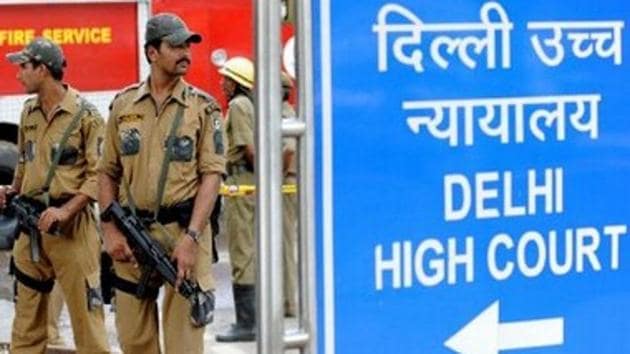Criminalising marital rape ‘may destabilise institution of marriage’: Centre tells Delhi HC
The Centre also said that what could appear to be marital rape to one, might not appear the same to others and warned against aping the West blindly.
The Centre on Tuesday told the Delhi high court that criminalising marital rape “may destabilise the institution of marriage” and would become an easy tool for harassing husbands, a position slammed as retrograde by rights activists.

Responding to a bunch of petitions seeking criminalisation of marital rape, the government said in an affidavit that the Supreme Court and high courts had already pointed to the misuse of Section 498A of Indian Penal Code (IPC) that prescribes punishment for husband for subjecting his wife to cruelty.
“As to what constitutes marital rape and what would constitute marital non-rape needs to be defined precisely before a view on its criminalisation is taken,” it said.
In India, marital rape is not defined in any statute or law. Rights activists want it to be made a criminal offence, saying it forces women to suffer the worst form of sexual violence in their homes.
Petitioners NGO RIT Foundation, All India Democratic Women’s Association and a marital rape victim have challenged as unconstitutional an exception to Section 375 of IPC and Section 376B.
Section 375 that defines rape also says sexual intercourse by a man with his wife aged 15 years or above is not rape even if it is without her consent. Section 376B deals with sexual intercourse by man with his wife during separation.
“If all sexual acts by a man with his own wife qualify to be marital rape, then the judgment as to whether it is a marital rape or not will singularly rest with the wife,” it said, adding there could be no lasting evidence of such acts between a man and his own wife.
Defining marital rape would need a broad-based consensus and a change in the attitude of prosecutors, police officers and society in generally, the Centre said.
“It has to be ensured adequately that marital rape does not become a phenomenon which may destabilise the institution of marriage apart from being an easy tool for harassing the husbands,” it said.
What could appear to be marital rape to one, might not appear the same to others, it said, warning against aping the West blindly.
Appearing for a petitioner, senior advocate Colin Gonsalves said marriage licence shouldn’t be viewed as a licence for a husband to rape his wife with impunity.
Marital rape remains a divisive issue.
Supreme Court lawyer Swaraj Kaushal, who is the husband of external affairs minister Sushma Swaraj, stirred a row on social media when he tweeted, “There is nothing like marital rape. Our homes should not become police stations.” He was reacting to the government’s affidavit.
The Centre was, however, hammered by rights activists.
People’s Union for Civil Liberties national secretary Kavita Srivastava called it stand retrograde. “Rape is rape, whether on marital bed or elsewhere, whether by husband or a stranger, and it’s time the governments understood this,” she said.
The government should criminalise marital rape to stop violence against women, Lad Kumari Jain, former chairperson of the Rajasthan State Commission for Women, said.
A men’s rights group on Monday told the court that existing laws were “very much capable of dealing with the cases of sexual abuse of women”.
The court will continue hearing the case on Wednesday.
Get Current Updates on India News, Ram Navami Live Updates , Lok Sabha election 2024 live, Election 2024 along with Latest News and Top Headlines from India and around the world.




